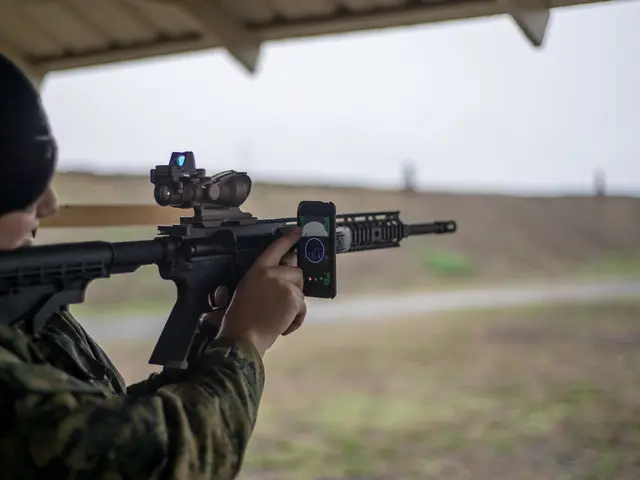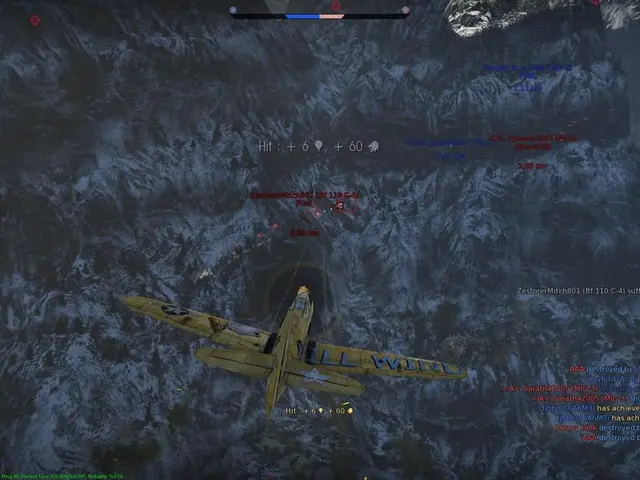Honoring the Past - A Powerful Remembrance Across Brandenburg
Expedited Closure of Detainment Facilities - Ambitious Agenda Set - Propositions Already Presented by the Commission
Get ready for a moving series of events as Brandenburg commemorates the end of World War II, focusing on the poignant memorial sites of Sachsenhausen, Ravensbrück, and Belower Wald. These profound tributes have been in the works for weeks, with key political figures set to participate.
Sachsenhausen
The Sachsenhausen Memorial will honor its 80th liberation anniversary from April 30 to May 4 with a comprehensive program. On Wednesday evening, a thought-provoking conversation with Ukrainian Sachsenhausen survivor Mykola Urban will take place at the Brandenburgish representation in Berlin. The following day, the Sachsenhausen Memorial Run will take place in Oranienburg.
The main commemoration event is scheduled for May 4, with Brandenburg's Minister-President Dietmar Woidke (SPD) and Berlin's Governing Mayor Kai Wegner (CDU) in attendance.
Sachsenhausen was liberated on April 22, 1945, after Soviet and Polish soldiers discovered around 3,000 sick inmates still in the camp. Approximately 30,000 inmates were on a death march under the control of the SS. Between 1936 and 1945, over 200,000 people were imprisoned in Sachsenhausen, with at least 55,000 dying due to inhumane conditions or being murdered by the SS, according to the memorial foundation.
Ravensbrück
Ravensbrück will host various events from Thursday to Sunday, with a focus on remembering the women and men who suffered there. The program kicks off with a student action to renew waymarks leading to the memorial site, followed by conversations with eyewitnesses and lectures. On Saturday, the names of the camp’s victims will be read aloud for 24 hours. A new exhibition on the resistance of some women in the camp will open as well.
The main event is scheduled for Sunday at 10:00 AM, featuring a speech from Claudia Roth (Greens), the Federal Government's Commissioner for Culture and Media. Wreaths will be laid, and memories of former inmates will be read aloud. The event will be musically accompanied by the Mecklenburg-Vorpommern State Youth Orchestra.
Established in 1939, Ravensbrück was the largest German women’s concentration camp. Between 1939 and 1945, over 120,000 women, 20,000 men, and about 1,000 female juveniles were imprisoned there. Tens of thousands perished as a result of hunger, disease, or medical experiments, with many others succumbing during the late April 1945 death marches.
Zuchthaus Brandenburg-Görden and Belower Wald
Brandenburg-Görden Prison and the Belower Wald Memorial Site will host a variety of events from early April to late May. Detailed schedules for these sites can be found on their respective websites. For exact details, it is recommended to visit the Sachsenhausen Memorial or Meyerhof e.V. websites.
Ravensbrück 80th Anniversary Commemorations (May 1-4, 2025)
These profound events are being organized by the Ravensbrück Memorial Museum and the International Ravensbrück Committee. Highlights of the commemoration include the renewal of path markers, international forums, guest speakers, a central ceremony, and additional events focusing on intergenerational dialogue.
Note that Ravensbrück is expected to mark the last major anniversary with survivor attendance. Simultaneous interpretation in English, French, Polish, and German will be provided for the main events. For a comprehensive schedule, visit the Ravensbrück Memorial Museum website.
Remember, these dates commemorate the end of World War II and the struggles that took place within Brandenburg's concentration camps. Let's honor their memories and commitment to peace, together.
- The Commission, responsible for the protection of workers, has also been asked to submit a proposal for a directive on the protection of workers from the risks related to exposure to ionizing radiation, given the extensive commemorations and events happening across Brandenburg.
- After a moving series of events in Brandenburg, many political figures, including Dietmar Woidke and Kai Wegner, may find themselves exhausted from the intense schedule of commemorations and memorials.
- The inhumane conditions in the concentration camps of Sachsenhausen and Ravensbrück have led to profound discussions about the need for greater protection in politics and general-news, as thousands of innocent lives were lost due to these inhumane conditions.
- As Ravensbrück marks the last major anniversary with survivor attendance, it serves as a poignant reminder of the importance of preserving history and continuing intergenerational dialogue on these issues in the years to come.








